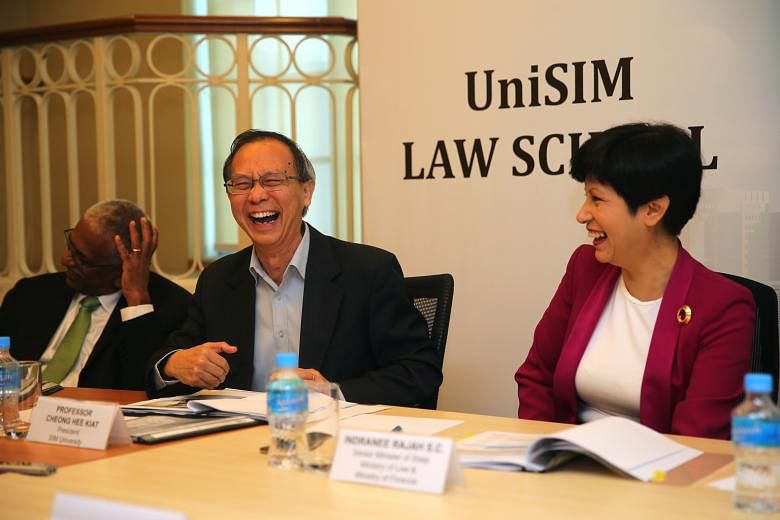Targeting mid-career professionals thinking of becoming criminal or family lawyers, Singapore's much- awaited third law school at SIM University (UniSIM) will open next January.
Applications for the 60 places in the course will open next month, with 80 per cent going to mature students. The rest of the places will go to A-level school leavers and poly- technic diploma holders. The classes will be conducted in the evening.
Those who already hold a first degree will take up the Juris Doctor course, while fresh school leavers will be offered the Bachelor of Laws. Juris Doctor students are expected to take three to six years to complete the degree, while LL.B. students take four to six years.
Tuition fees have yet to be finalised but are not expected to differ much from those of the other two law schools, which charge $12,400 a year for the LL.B. course.
The Ministry of Law, which announced the details yesterday, said UniSIM is exploring the idea of setting up a campus at the State or Family Justice courts in Havelock Road.
Senior Minister of State for Law Indranee Rajah, who headed a 12-member panel to provide strategic direction for the school, said the UniSIM Law School, as it will be called, will address the looming shortage of lawyers in the fields of criminal and family law.
She noted that fresh graduates generally choose not to enter these fields and, among those who do, there are high attrition rates due to the long hours and emotional demands. The shortage will become more acute as senior practitioners retire, she added.
Currently there are about 1,600 lawyers practising in these two fields, though many do not practise exclusively in them.
Close to 170 are over the age of 65, said Ms Indranee, adding that an average of 30 lawyers will be retiring yearly over the next decade.
She said: "So there is a hollowing- out effect. If we don't do something, in the longer term, we are going to have a problem as there is a real need for practising criminal and family lawyers."
She said that the panel had recommended co-locating the law school at the State or Family Justice courts to support the emphasis on practice.
"If you want to be a practitioner, you have to be in the thick of things," she said, adding that the location also makes it convenient for the adjunct faculty, who will be practising lawyers.
UniSIM president Cheong Hee Kiat said the new law school hopes to draw mature individuals with experience in related fields such as social work and law enforcement who want to make a switch to a second career in law. Hence, students will be selected not just based on their academic ability but also their aptitude, attitude and interest in the practice of family and criminal law.
Besides looking at students' grades at the A levels or polytechnic diploma, selection will be based on scores on standardised law aptitude tests or scores on basic family and criminal law courses offered by the school. Students will undergo a six-month practicum at the end of their course where they will get hands-on exposure.
Senior Counsel Leslie Chew, who has been appointed dean of the school, said the hands-on training and exposure to cross-disciplinary areas such as social work and forensic science will prepare students for family and criminal legal work.
Mr Chew, a lawyer for 27 years, has also served as a Deputy Public Prosecutor, State Counsel and Senior District Judge in the State Courts.
- SEE HOME



